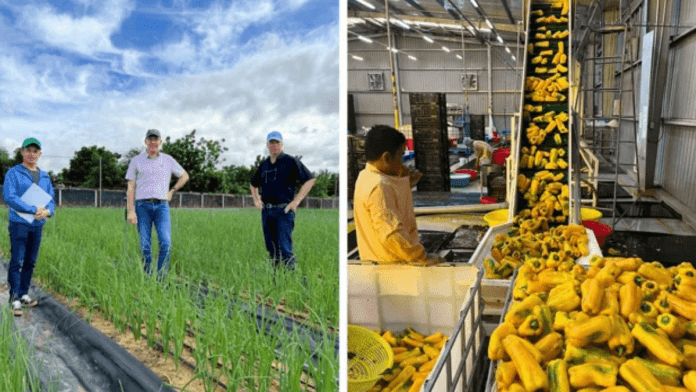News in Brief:
– Vietnam’s vegetable market is experiencing rapid growth, with a 6.9% CAGR and is projected to exceed $100 million by 2030, driven by shifting consumer trends and government support.
– Bejo’s initiatives in seed production and research, along with collaborative projects, are shaping the modernisation of Vietnam’s vegetable industry, despite challenges like biosecurity and climate variability.
Vietnam’s vegetable market is transforming, propelled by a robust development rate and shifting consumer preferences. Bejo, a pioneering breeding company, has played a significant role in this evolution, investing in seedling production and research facilities in Vietnam since 2018.
Agung Pratama of Bejo South East Asia highlights the significant growth trajectory of the Vietnamese seed market, boasting a Compound Annual Growth Rate (CAGR) of 6.9% until 2023. This growth, surpassing 7% in the past five years, is indicative of the market’s positive momentum, poised to exceed $100 million by 2030. The surge in demand for vegetable exports and hybrid seeds underscores this expansion, driven by supportive government policies and favorable climate conditions.
The pandemic has catalysed a surge in vegetable consumption, coupled with an increased focus on healthy eating and cultivation practices. Consumers are now more inclined towards online purchasing, reflecting evolving market dynamics and preferences. Vegetable packaging now provides comprehensive nutritional information, signaling a shift towards modern trade practices.

Bejo’s product portfolio, including allium, rooted vegetables, and brassica, resonates well with Vietnamese consumers. Efforts to develop indoor segments, encompassing lettuce and fruit crops, further diversify offerings. Collaborative initiatives, such as the “Transition towards sustainable shallot value chains in the Mekong Delta” project, exemplify industry stakeholders’ commitment to sustainable development and innovation.
Empowering local communities and regional growth
Despite remarkable progress, the Vietnamese vegetable industry grapples with biosecurity concerns and climate-related challenges. Stringent regulations on seed importation necessitate improved communication and streamlined processes. Moreover, climate variability, exemplified by flooding risks and rising temperatures, underscores the need for adaptive greenhouse technologies and versatile crop varieties.
Bejo’s endeavors extend beyond business interests, prioritising the development of local talents and knowledge sharing. The company’s presence in Vietnam and Indonesia underscores its commitment to regional growth and sustainability.
As the Vietnamese vegetable market embraces modern trade practices and navigates evolving consumer trends, collaborative efforts and technological innovations will be instrumental in ensuring sustained growth and resilience against emerging challenges.



